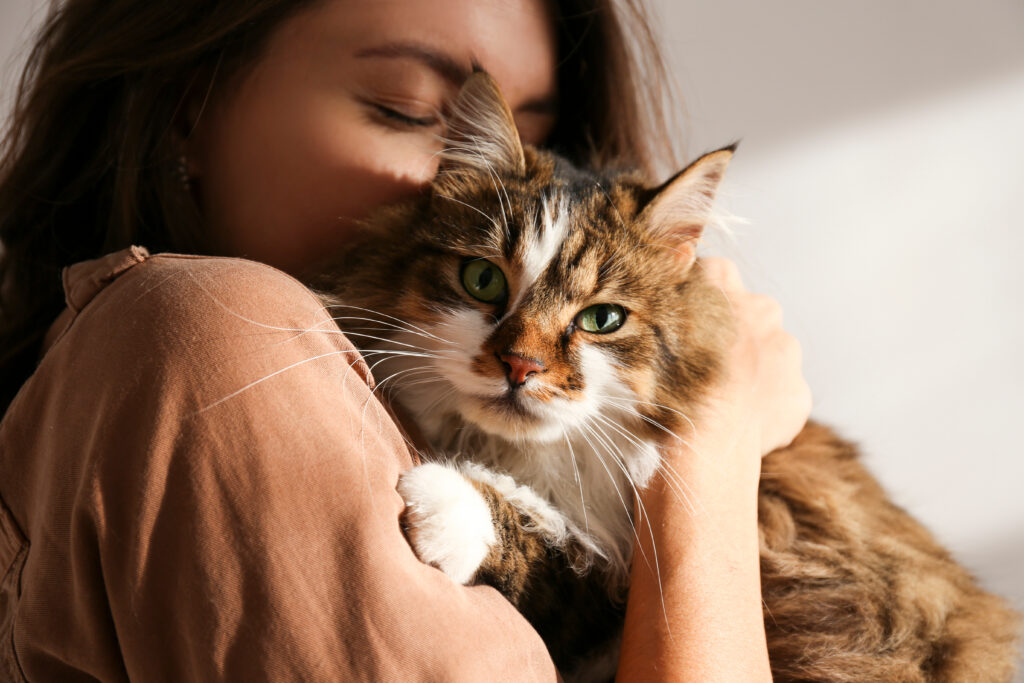Pre-nups for pets – that is, pre-nuptial agreements for newly co-habiting couples – and even post-nuptial agreements for already married spouses, are unlikely the first thing that comes to mind for many pet owners.
Yet as Australian family law specialise Eve Smith notes, pets are being “weaponised and used as tools in a separation”.
As such, she suggests that post-nups and pre-nups for pets can provide greater certainty about a pet’s future should their owners’ relationship break down in future.
“By putting a pet-focused pre- or post-nuptial agreement in place, couples would eliminate the risk of a dispute and protect their ‘fur baby’ from being used as a bargaining chip,” says Ms Smith, a director of Umbrella Family Law in Melbourne.
How do pre-nups for pets work?
The term “pre-nuptial agreement”, or pre-nup for short, is perhaps the best-known term, thanks largely to the influence of US television series and films. It relates to defining who has ownership of what prior to marriage.
Yet under Australian law, marriage isn’t necessarily a defining factor. Any couple who live together or share ownership of a pet can put an agreement in place.
In fact, Ms Smith suggests being unmarried is even more reason to put an agreement in place, as non-married couples are more likely to see disputes about a pet.
“Sometimes they are early on in their relationship and certainly a lot of unmarried couples have animals before children, especially since COVID,” she says.
They are particularly relevant for anyone who already has pets when coming into a new relationship.
What about post-nuptial agreements for pets?

Post-nuptial agreements in Australia, meanwhile, are often known as “legally-binding financial agreements”, says Ms Smith.
These agreements, sometimes referred to as post-nups, are useful for when a pet has been adopted or brought into their household during the relationship, or when the couple did not already have a pre-nup in place.
Are post- and pre-nups for pets legally enforceable in Australia?
The short answer is yes, although there are certain exceptions to this.
“They are legally binding, but it depends very much in the way they are drafted,” Ms Smith tells Paws N’ All.
Essentially, these types of agreements are not binding if particular criteria are not met.
According to Ms Smith, these factors include:
- Neither party drafting or signing an agreement under undue pressure
- Both parties receiving legal advice before signing it
- The timing of the agreement (e.g. Was it early in a relationship, or right before the separation?)
A suitably qualified lawyer will be able to offer legal advice according to your particular circumstances and the laws of the state or territory in which you live.
Are there restrictions on what animals can be covered by post- and pre-nups for pets?
“No, not at all,” Ms Smith says.
She says that dogs are the most common, simply because they are the most common type of pet in Australia.

However, any pet or domestic animal can be covered by this type of an agreement, assuming there is no commercial ownership involved.
“I haven’t had a budgie yet!” Ms Smith says with a laugh.
Predominantly we have dogs – quite a few people have racehorses, but that’s usually a business rather than personal. But the rabbits is probably the least common.
Advice on post- and pre-nups for pets
For anyone thinking of drawing up an agreement to cover Fido, Mitzy, Flopsy or Tweetie, Ms Smith advises considering the following points:
- Who does your pet naturally bond more with?
- If you have kids, does your pet bond with your children more than either of you? Should pets accompany children on visits?
- Conversely, would your pet need time away from your kids?
- What is your pet’s breed and how does that influence each partner’s capacity to look after them post-separation?
- Is your pet adopted? Do they have a traumatic background?
- Will both partners share custody and financial responsibility? Will it be fair on your pet to move them between different households?
- If you have multiple pets, can they be separated or should they be kept together?
- End-of-life scenarios and access for each partner to say goodbye.
Change can be hard on pets

Aside from the legal side, however, consider how any change in living arrangements will affect your furry, feathery or scaley friend:
- Look after your pet: Separations are stressful on them too. They may grieve the loss of a parent, especially if they never get to see your ex again.
- Update your pet’s microchip details: If you have custody but your pet’s microchip lists your ex as the owner, they are the ones who will receive the call should your pet escape.
- Notify your vet: Again, you want to be listed as the owner and point of contact if you have custody.
- Most importantly, put your pet first: Think about what is ultimately in their best interests, not just your own!










